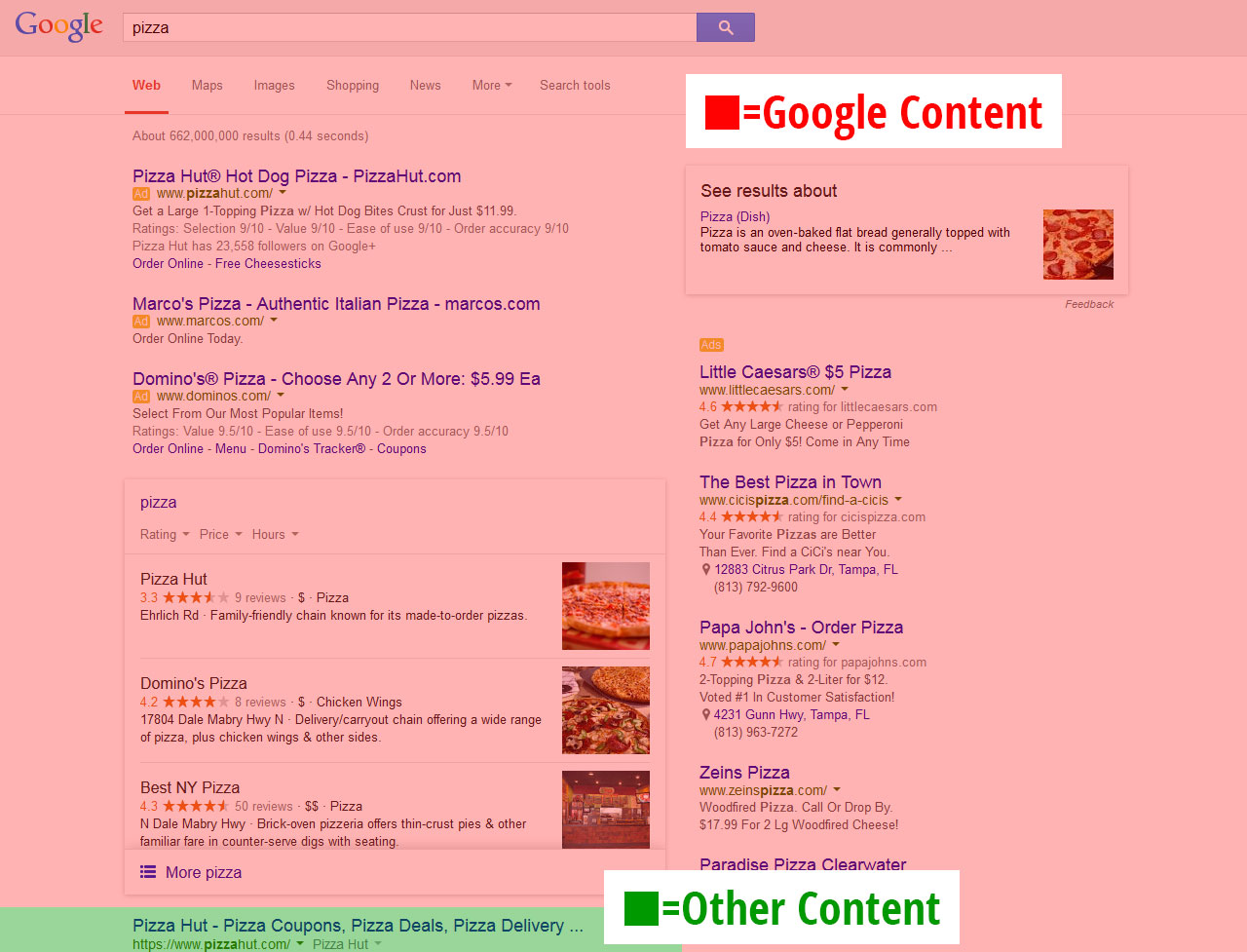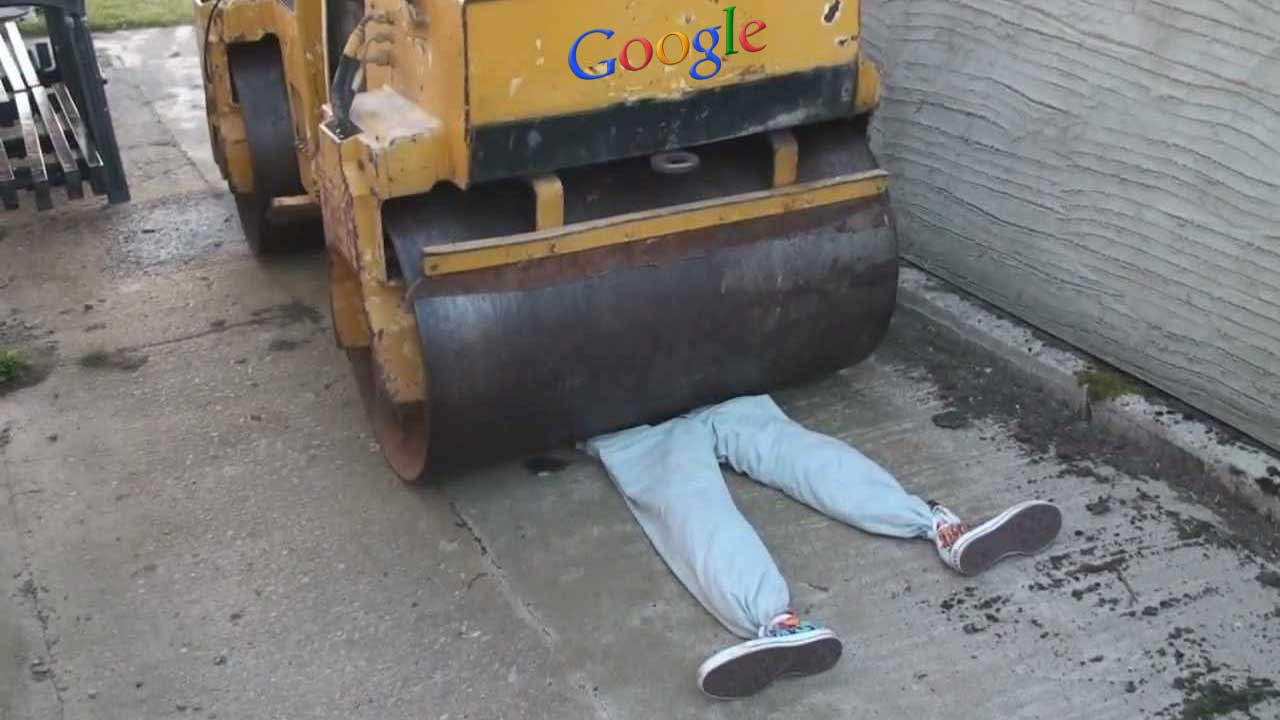We all had a good run. We really did.
When Google first stepped on to the scene, it was like a breath of fresh air. Especially with their catchy little “don’t be evil” motto.
If only we had known it was a lie.
It was so simple back then. You design a website, code it properly, write great content and voila—rankings! What’s not to love?
Google preached that we should make our websites for the user, not for the search engines…
- Stop wasting time with meta tags because they aren’t a ranking factor anyway. Awesome!
- Skip the spammy keyword stuffing. Great! I can get behind that idea because no one wants to see “buy blue widgets” in literally every single sentence.
- Show the user and the search engine bot the same content. OK. While I can see legitimate reasons to show people and bots different content, I can also see Google’s point.
But over the past few years, Google has become, well, ridiculous.
Anyone promoting a produce, service, or idea, wants to be in front of more people, right? I mean, you didn’t create a website to use it as a private journal about your obsession with Taylor Swift. You want to sell something or promote an ideology. Doing so requires exposure, which means you need others to talk about it, and on the internet, links are the equivalent of others talking about your website.
Google’s policy towards links has changed dramatically, though.
First, they encouraged acquiring links to your site. Then they decided that we weren’t allowed to trade links. Next, buying or selling links was deemed “wrong.”
Buying or selling links that pass PageRank. This includes exchanging money for links, or posts that contain links; exchanging goods or services for links; or sending someone a “free” product in exchange for them writing about it and including a link
Google then claimed anyone who buys or sells links must add the nofollow tag to let the search engines know to ignore the link.
Excuse me, what happened to that “design for the user, not the search engines” line they were constantly repeating? If I’m truly designing for the user, I’m not wasting time sending hidden messages to the search engines so they can figure out how to do their job.
Their propaganda grew more brazen as they continued trying to eliminate any form of marketing that didn’t involve funneling money into an AdWords slush fund.
Guest blogging, which was wildly successful (both for SEO and referral traffic) for a period of time, was quickly demonized by Google as a “scheme” designed to defraud users.
Um…no.
How is writing an article on a high-traffic website to earn exposure any different from going on a television or radio program to earn exposure?
It’s not, but Google has a different opinion and has aggressively attacked the practice and those who participate. Primarily, because it give people the ability to promote themselves without handing money to Google for AdWords.
John Mueller, a spokesperson for Google, claimed that you should not try to build links to your website because it’s unnatural.
Excuse me? It’s “unnatural” to promote your business now according to Google?
But wait…it gets better; even asking someone to link to your website is now a violation. (Google recanted their statement a day later, but only because of a massive backlash in the web community.)
They’re just cracking down on links though, right?
Google (and their apologists) claim that it’s only about manipulative linking practices. They promise that they’re just looking out for users and trying to give them the best user experience.
Bullshit.
If they truly cared about user experience, they would not have blocked keyword data in Google analytics. Google blocks around 50% of the keyword data previously available, claiming they are trying to protect users—a claim that is demonstrably false because 100% of that data is still available to paying Google AdWords clients.
Google tells us to write content our visitors want, but if you don’t know what keywords are driving people to your website, how are you supposed to know what kind of content they are most interested in? Sure, you can speculate and make educated guesses, but it won’t be anywhere near as accurate as if you had your keyword data.
If Google cared about user experience, they wouldn’t penalize other websites for the same practices they engage in. They wouldn’t scrape content. And they wouldn’t lift penalties for companies they fund.
If they cared one tiny bit about user experience, they would display a diverse set of results from various websites instead of a growing list of Google-owned properties.
Here is what a search on Google for the term “pizza” gives you:

It’s all bullshit.
Google doesn’t give a damn about user experience—they only care about their bottom line. If that means inadvertently fucking you for a few more dollars in profit, they will gleefully crush you like an armor-plated steamroller and go on about their day without a second thought.

Meanwhile, you lay whimpering on the pavement wondering why you just got destroyed despite following all of Google’s webmaster guidelines.
So what’s the answer then?
It’s not going to change. Google isn’t going to start giving back to small businesses, nor should we expect them to. After all, they are running a for-profit business and their goal is to make as much money as possible.
Hoping and waiting for Google to change isn’t going to produce results, and neither will continuing to play by an increasingly constricting set of rules for an ever-dwindling piece of exposure.
The good news is that Google is no longer the only girl at the dance. She’s not even the prettiest girl anymore.
It’s time to end this dysfunctional relationship. Because the more you give, the more Google takes, and pretty soon there won’t be anything left for you.
You need to own your marketing channels. Search doesn’t let you do that. There are three channels that do, however; podcasting, email, and to a lesser extent, social.
Today, we have tons of social networks, including Facebook, Twitter, Instagram, Pinterest to name just a few, that give you the ability to reach a far larger audience more quickly than search ever could. But relying on any one, or even several of them, will only land you in the same position again in a few years down the road. If you’ve followed how Facebook has treated brand pages lately, you know exactly what I’m talking about. That’s why social is only one part of the equation.
Email is still a massively powerful tool that you should definitely leverage, but it will take time to build your list, so if you haven’t already, you need to start today.
Once in place, you can use it to instantly alert your audience about new content, products or services, and news anytime you want. Of course, you’ll have to be careful not to abuse this relationship—they gave you permission to email them, but they are expecting you to provide value, so you need to do that or they will unsubscribe and you’ll be back where you started.
(If you are looking for a solid email service, I highly recommend Aweber.)
If you want solid, practical advice on how to provide the kind of value that will turn them into a loyal audience—read Gary Vaynerchuk’s book Jab, Jab, Jab, Right Hook.
The silver bullet, at least for now, is podcasting. The number of podcasts is somewhere in the low hundreds of thousands; a tiny fraction of the competition you’d face against other websites competing on SEO. Even prominent bloggers with tons of organic traffic, like Pat Flynn, can testify that podcasting can quickly outpace traffic from all of your other sources.
Boasting well over 800,000,000 subscribers, iTunes is a huge untapped market practically begging you to promote your business. Think of it like Google before Google became a steaming pile of shit—and before every business had a website. Yes, it’s that awesome!
Mark my words, in 10 years, nearly every business will have a podcast, just like today, nearly every business has a website. Between social, email, and podcasting, you can replace and even surpass (by exponential measures) any of the traffic you get from SEO with far less effort, while having lot more fun.
So, I’m sorry Google, but I think it’s time for us to break up. I’m just not willing to jump through your hoops anymore.
Will we continue to optimize website for our clients? Absolutely, but Google will be an afterthought. Yes, we will still code websites that load quickly and are mobile-friendly, and we will continue to (gasp) build links—all to provide a better user experience for visitors and more exposure for clients. If that happens to line up with Google’s “webmaster guidelines” then great! If not, that’s fine too.
